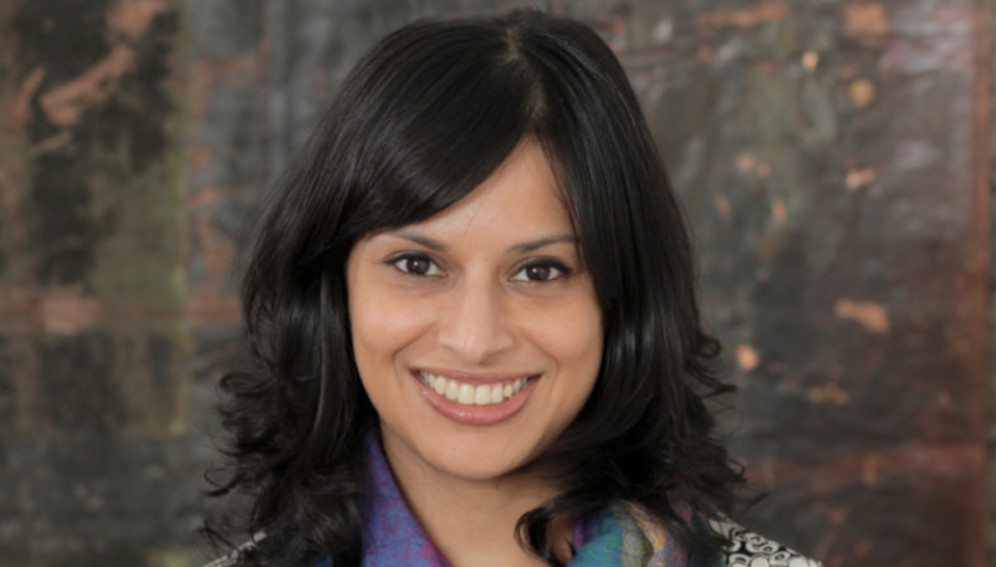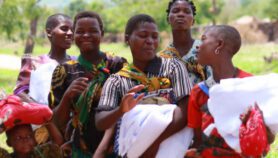By: Louise Coghlin
Send to a friend
The details you provide on this page will not be used to send unsolicited email, and will not be sold to a 3rd party. See privacy policy.
Access to fast, accurate genomic sequencing information is key to ending the COVID-19 pandemic, says Manisha Bhinge, managing director of programmes for the Rockefeller Foundation’s Health Initiative. Yet only 14 countries, all with developed economies, are sequencing at least five per cent of their cases and sharing them through a global database.
As the first step in the development of its new pandemic prevention institute, the New York-based foundation is seeking to strengthen global capacity to sequence and share genomic information on COVID-19 and other data rapidly.
Bhinge told SciDev.Net this new “global architecture” would go on to provide information needed to “see the signals, speed up the response, and contain the spread of pathogens of pandemic potential”.
Why do we need a new pandemic prevention institute?
If you look at this time last year, our biggest challenge with was information: quality information, timely information, and information that we could trust. There was a cascade of failures based on that in terms of strategically containing outbreaks, epidemics and what turned into a pandemic.
We have to celebrate what we did achieve in terms of rapidly having tests and diagnostics [for COVID-19] ready and available, and having vaccines ready within a year.
However, the fact remains that if you asked most stakeholders three fundamental questions – ‘What is it?’, ‘Where is it?’ and ‘How is it moving and spreading?’ – there were gaps and the world was flying blind at a time of greatest need and uncertainty. We don’t want that to happen again.
“If you look at this time last year, our biggest challenge with was information: quality information, timely information, and information that we could trust.”
Manisha Bhinge, Rockefeller Foundation
What is the new institute doing?
Our effort is very much tied to the need for information and data. How do we use 21st century approaches – technologies that are emerging from molecular biology and genomics, and from data analytics – to guide and elevate detection of outbreaks to the point that we prevent epidemics and pandemics, and understand containment and spread, in a very accelerated manner?
That’s very broad, and it’s broad because the architecture is still evolving. We need to do this in collaboration with a network of countries, leading global health agencies and the private sector.

Manisha Bhinge, managing director of programmes for the Rockefeller Foundation’s Health Initiative. Image credit: Rockefeller Foundation.
What does that mean on the ground?
Very tactically, what we are trying to do in the here and now is build sequencing and bioinformatics capacity within countries. For example, Stellenbosch University in South Africa is working with universities in Nigeria and Uganda to strengthen the workforce through fellowship programmes, provide strategic sampling models for procuring samples from adjacent countries and provide that sequencing capacity for a region.
Similarly, in India we have a consortium of four partners across the country that provides sampling strategies that increase representation and depth within that country to allow us greater insight – more timely, granular and accurate insight – around variants of concern.
How will approaches vary with context?
We don’t know till we know is the short answer. While the science may not change in its technical sense, the processes will need to.
We need to right-size the systems for what is sustainable – the workforce, the instrumentation, the access to consumables – we need to right-size based on regional contexts because what works for the US is not going to necessarily work for Sub-Saharan Africa and the processes therefore need to change.
Is there a regional approach to sequencing [for example]? What is the governance element of that? How does sampling take place, what about transportation? A lot of these transactional elements need to be addressed to make the system work.
Also, the bias in the data needs to be addressed. What are the sampling strategies that will ensure representation within populations and demographics?
What do you mean by bias in the data?
It’s the metadata that is more powerful than the pure sequencing data. That’s where the representation across populations, across demographics, and across socioeconomic and epidemiological dimensions becomes very critical, and that’s where we run into challenges of being complete and comprehensive.
The metadata allows for prioritisation of limited resources, which is what we saw in the vaccine rollout. Deciding which group of people needs the vaccine first, for example, requires an understanding of where there is inherent risk within a population and that’s when metadata is incredibly useful.
How specific are your efforts to COVID-19?
In the global health world, there are a lot of challenges, so attention tends to be diverted occasionally. Right now, the attention is on COVID. It’s on variants of concern and the energy of global stakeholders is to bring this pandemic to an end.
We are leaning into that energy, that momentum, and building the infrastructure, the workforce and the sustainability structures for long-term genomic surveillance. In the here and now, we are building off of COVID and specifically the variants of concern, but the structures and the infrastructure that we want to develop will be relevant for long-term surveillance of multiple pathogens, those that are currently in place as well as other emerging ones.
This piece was produced by SciDev.Net’s Global desk.

















